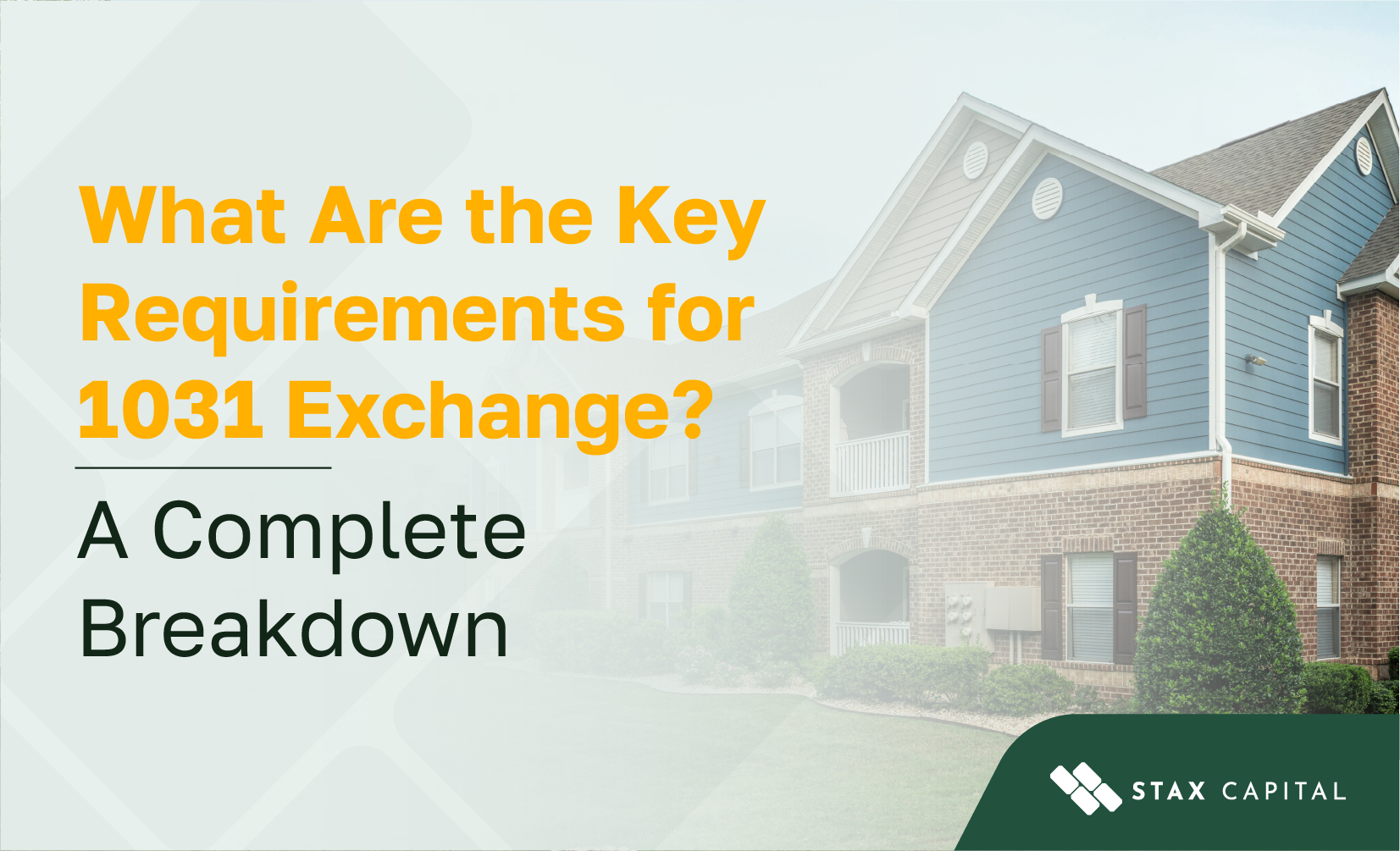Capital Gains and Depreciation Recapture: What Every Seller Should Know

Exchange Tips
Selling a property can feel like a financial win, but are you prepared for the taxes that come with it? Capital gains and depreciation recapture are key tax factors that could reduce your overall profit. Understanding these concepts is critical for effective financial planning.
In this blog, we’ll break down these concepts and highlight tax strategies that could help you manage your tax burden.
What are Capital Gains?
Capital gains are the taxable profits from selling an asset for more than you paid. In real estate, this means the difference between what you bought the property for and what you sold it for, minus any allowable expenses. These gains are considered taxable income, and understanding how they are calculated can help you plan your finances when selling property.
Depending on how long you have owned the property, your overall income and your state of residence will all impact your net or after-tax returns. Short-term gains (held under a year) are taxed at ordinary income rates, while long-term gains (held over a year) are taxed at reduced rates.
Understanding Depreciation Recapture
Depreciation recapture is a tax that requires you to pay back a portion of the tax savings you received from depreciation deductions. Here’s how it works: When you buy a rental property, the IRS allows you to depreciate the structure over time to account for wear and tear. This deduction helps reduce your taxable income, which saves you money in the short term.
But when it’s time to sell, the IRS requires you to pay tax on the depreciation deductions you’ve claimed, 25% of the tax deduction will be recaptured at sale.
Types of Depreciation Methods
Straight-line
This is the most straightforward and commonly used method for depreciation. The asset’s cost is evenly spread over its useful life. The expense remains the same every year, making it easy to calculate and predict.
Formula:
Depreciation Expense = (Cost – Salvage Value) / Useful Life
Declining balance
This method accelerates depreciation in the earlier years of the asset’s life. Double-declining balance, a common variation, depreciates the asset at twice the rate of the straight-line method, making it ideal for assets that lose their value faster in their initial years.
Formula:
Depreciation Expense = Beginning Book Value × Depreciation Rate
Sum-of-the-years' digits
This is another accelerated depreciation method where the depreciation expense is higher in the earlier years. The asset's remaining life is divided by the sum of the years, and then the result is multiplied by the depreciating base to calculate the depreciation for each year.
Formula:
Depreciation Expense = (Remaining Life / Sum of the Years Digits) × (Cost – Salvage Value)
Units of production
This method ties depreciation directly to the asset’s usage, such as the number of hours it runs or units it produces. It’s particularly useful for assets that are used more or less consistently during their life.
Formula:
Depreciation Expense = (Units Produced / Total Units) × (Cost – Salvage Value)
Factors Affecting Depreciation
Property type: residential vs. commercial
Depreciation for residential and commercial properties is treated differently. Residential properties generally have a shorter depreciation period (27.5 years) compared to commercial properties, which are depreciated over 39 years. Therefore, residential investment provides greater tax-sheltered income than does commercial. The choice of property type can affect the amount of depreciation you can claim each year.
The building’s original value vs. land value
Land does not depreciate. Therefore, only the value of the building, not the land, is considered when calculating depreciation. The first step is to separate the cost of the building and the land when purchasing a property.
Improvements and renovations
Renovations or improvements made to a property can increase its depreciation base. However, each improvement may be depreciated separately over different periods based on the type of work done. For instance, adding a new HVAC system may have a shorter depreciation period (5-10 years) compared to the building itself.
IRS-defined useful life periods
The IRS provides specific useful life periods for different types of property and improvements, which affect how long an asset can be depreciated. These periods are crucial to ensure that depreciation is calculated accurately.
Strategies to Minimize Depreciation Recapture Taxes
Use 1031 exchange
A 1031 exchange, also known as a "like-kind exchange," allows you to defer depreciation recapture and capital gains taxes by reinvesting the sale proceeds into a similar property. Strict IRS timelines and guidelines must be followed, including identifying a replacement property within 45 days and closing within 180 days.
Invest in opportunity zones
Qualified Opportunity Funds (QOFs) offer potential tax deferral benefits when gains are reinvested in designated Opportunity Zones. Holding the investment for at least 10 years may result in partial tax elimination on new gains.
Opt for Installment Sales
With an installment sale, you spread the proceeds of your property sale over several years, reducing the immediate tax impact. While depreciation recapture is taxed upfront, the remaining capital gains tax is deferred, allowing for potential tax bracket management.
Use trust structure
A trust, such as a Charitable Remainder Trust (CRT), allows you to transfer property into the trust, sell it tax-free, and receive income distributions over time. This strategy can minimize depreciation recapture while providing estate planning benefits.
Ready to Optimize Your Tax Strategy?
Real estate investments come with complexities, but they also offer opportunities to navigate taxes intelligently. Understanding capital gains and depreciation recapture is key to optimizing your returns. By planning ahead, you can avoid surprises and keep more in your pocket.
Have questions? Contact us now.



Share: